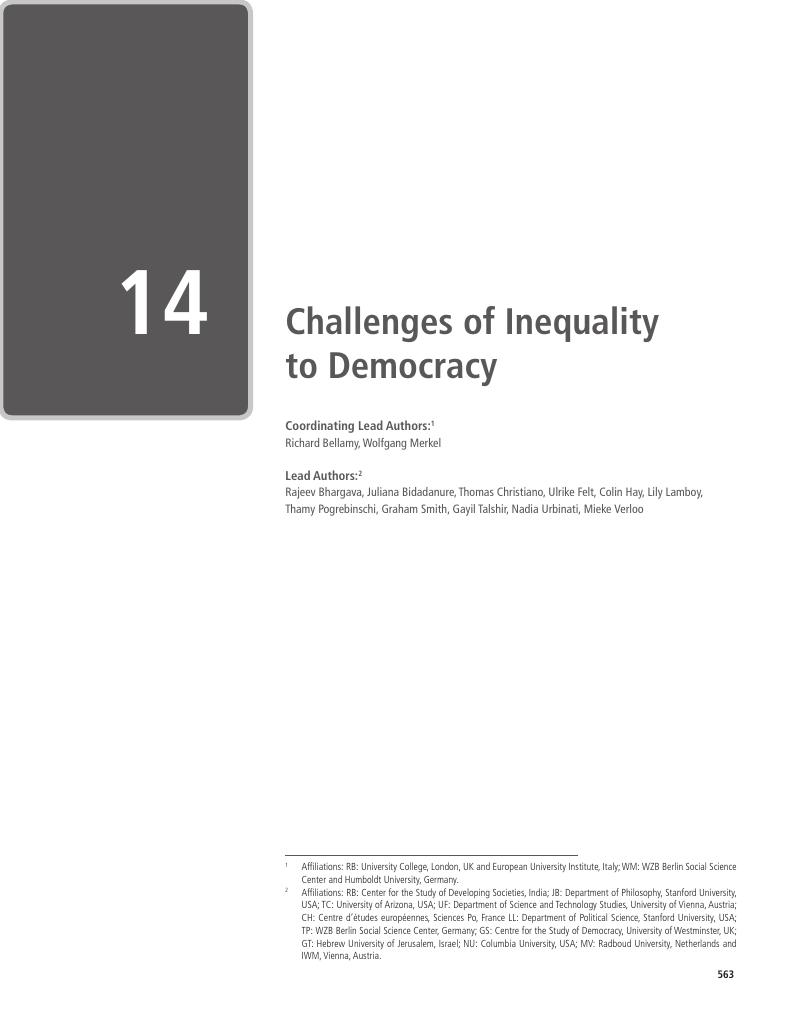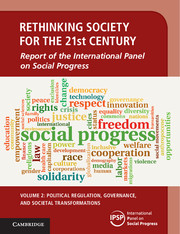Book contents
- Rethinking Society for the 21st Century
- Rethinking Society for the 21st Century
- Copyright page
- Contents
- Introduction to Volume 2
- Political Regulation, Governance, and Societal Transformations
- 9 The Paradoxes of Democracy and the Rule of Law
- 10 Violence, Wars, Peace, Security
- 11 International Organizations and the Technologies of Governance
- 12 Governing Capital, Labor, and Nature in a Changing World*
- 13 Media and Communications*
- 14 Challenges of Inequality to Democracy
- Volume 2 Authors
- Index
- References
14 - Challenges of Inequality to Democracy
from Political Regulation, Governance, and Societal Transformations
Published online by Cambridge University Press: 05 July 2018
- Rethinking Society for the 21st Century
- Rethinking Society for the 21st Century
- Copyright page
- Contents
- Introduction to Volume 2
- Political Regulation, Governance, and Societal Transformations
- 9 The Paradoxes of Democracy and the Rule of Law
- 10 Violence, Wars, Peace, Security
- 11 International Organizations and the Technologies of Governance
- 12 Governing Capital, Labor, and Nature in a Changing World*
- 13 Media and Communications*
- 14 Challenges of Inequality to Democracy
- Volume 2 Authors
- Index
- References
Summary

- Type
- Chapter
- Information
- Rethinking Society for the 21st CenturyReport of the International Panel on Social Progress, pp. 563 - 596Publisher: Cambridge University PressPrint publication year: 2018
References
- 2
- Cited by



